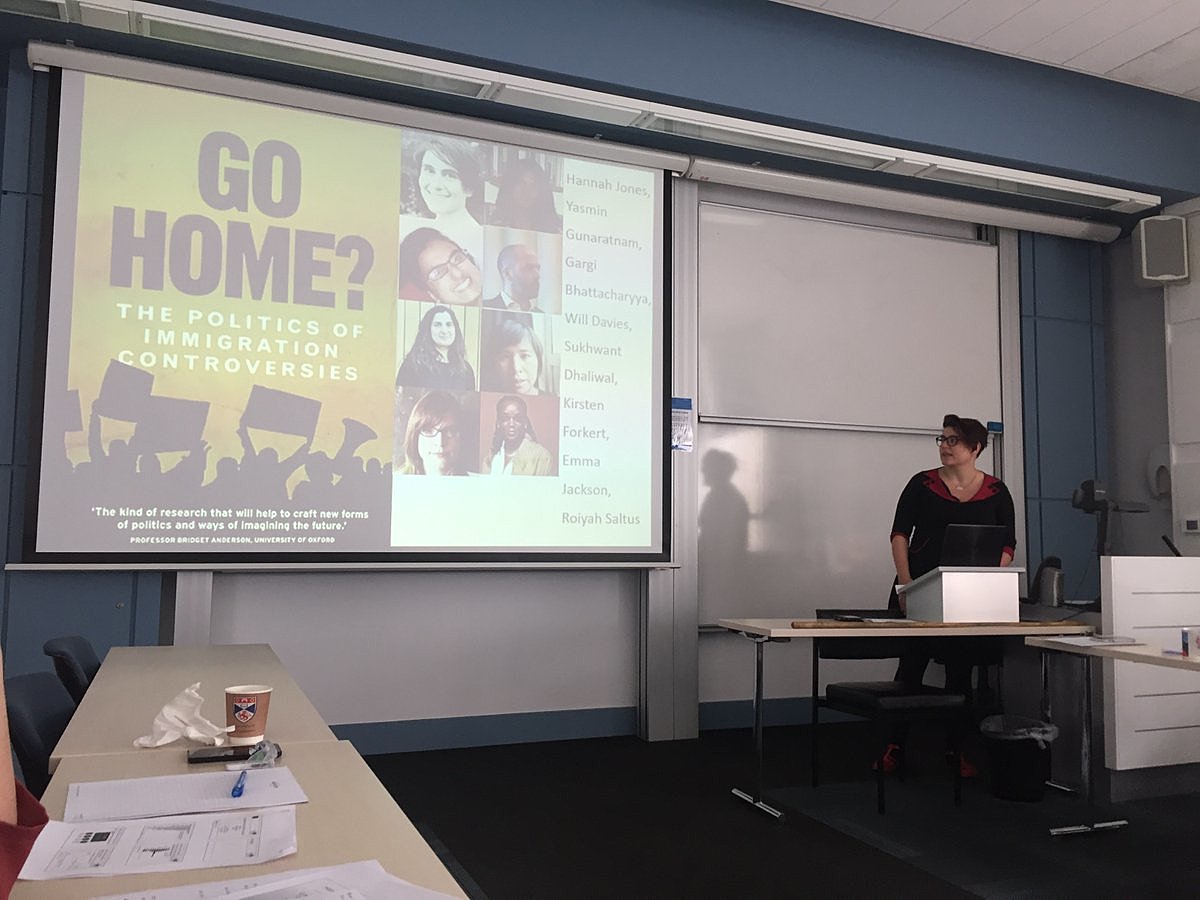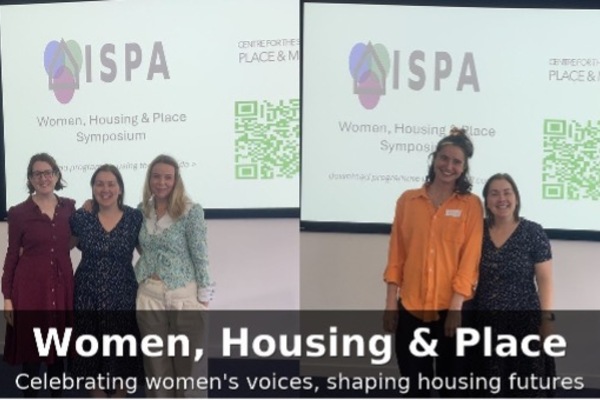
On June 8th Dr Kim McKee (University of St Andrews) and Dr Sharon Leahy (University of St Andrews) hosted a symposium on ‘The Impact of the UK Immigration Act on Housing and Public Services’ at the University of St Andrews. The event was supported by an event bursary from the Housing Studies Association.
This timely conference brought together 25 academics and housing practitioners from across the UK, with strong representation from early-career researchers. In a welcoming and politically engaged atmosphere attendees listened to papers from 7 speakers and fostered debate on the ongoing implications of the “hostile environment”. The event was chaired by Dr Kim McKee.
Dr Hannah Jones, from Warwick University, provided the opening keynote for the day. She expertly set the scene for the event, showcasing the context of the hostile environment. Jones urged us to ask, how have what were once extreme measures of discrimination become so ordinary and unremarkable in quite a short space of time. Utilising John Berger’s (1975) “7th Man”, she illustrated how the hostile environment has become a standardised experience for both the migrant and the UK citizen. She correspondingly drew attention to the fact that there is a burgeoning and deliberate grassroots movement to de-normalise this trend. Examples including, Anti-raids Network, Docs not Cops, and ABC Against Borders for Children were used to illustrate the ways in which disruption of this normalisation was taking place on a consistent, often localised basis.
In the session that followed Dr Sharon Leahy (St Andrews) and Professor David Robinson (Sheffield) highlighted the impacts of migration and subsequent UK Immigration Acts on housing. Leahy focused on the movement from the hostile environment to the compliant environment. She presented the variety of ways in which the Immigration Act 2016 has infiltrated our daily lives. Drawing on the everywhere nature of the border, she drew attention to the normalisation of the hostile environment. Leahy called for resistance against these bordering processes enacted by the general public, seeing them as acts of everyday violence. As well as drawing attention to the recent (critical) inspection of the right to rent scheme, she also showcased the burgeoning variety of work that is gaining traction on the impacts of the Act on public services more broadly.
In the presentation that followed Robinson concentrated on the historical connections between research into ethnicity, housing, and marginality in the English context. He focused the audience’s attention to two key arguments, stressing the need to look back and draw parallels with previous research in this field over the past 50 years and to look more deeply at the associations with social class. Robinson stressed that migrants are a convenient folk devil, who were being used to bolster entrenched narratives of difference. In turn housing provision problems are being explained away by migration. Robinson closed his talk with a call for a renewed impetus into research in this area.
The next session turned our attention to the situation in Scotland, and the tensions around migration policy between London and Edinburgh. Dr David McCollum (St Andrews) asked is Scotland distinctive with respect to migration? Through a series of quantitative graphs and figures, McCollum represented the rapid changes in Scotland’s immigration experience. He highlighted the importance of migrants to the Scottish economy and the reliance Scotland has on immigration for demographic growth and subsequent continued economic growth. He ended his talk surmising on how a distinctive immigration policy might work for Scotland.
Eloise Nutbrown, from COSLA, provided insight into the local government role with respect to migrants in Scotland. She discussed the rising level of destitution and provided insight into how the NRPF (no recourse to public funds) conditions placed on some migrant’s visa adversely impacted them if they fell on tough times. Many of those holding a NRPF classification may be European nationals. She focused on the challenges faced by local government to support the needs of these migrants, and the challenges created by hostile policies.
The afternoon sessions focused attention on more specific impacts arising from the immigration act. Anna Pearce an evictions caseworker with the Asylum Seeker Housing Project (ASH) in Glasgow used Agamben’s homo sacer and Butler’s petty sovereign to explain ASH’s role in aiding those threatened with and facing eviction. Pearce went on to speak about Rob Nixon’s slow violence in relation to the ways in which migrants are being treated by the State. She detailed personal experiences of asylum seeker’s living conditions and insidious punitive measures used against them to showcase this claim. Her experiences from the front-line brought the ideas of the state of exception and the propagation of slow violence to life in a compelling way.
Our final speaker was Regina Serpa (Heriot-Watt), who spoke about threats to the rule of law in relation to Home Office decisions affecting homeless EU nationals. She framed these violations of the rule of law as ultra vires, situating her argument within wider debates about the ‘crimmigration control system’. Serpa concluded her presentation by underlining the threats these violations pose to the political institutions that underpin our democracy.
The event provided an excellent networking opportunity for colleagues interested in migration and public services in general terms, and the Immigration Act more specifically. It promoted the sharing of evidence and ideas, as well as highlighting areas where more research is needed. The event builds on the ongoing work within the Centre for Housing Research at St Andrews on the Right to Rent provisions of the Immigration Act (see publications in Antipode and People, Place and Policy online). The organisers are grateful to the Housing Studies Association for their support of this event.
Dr Kim McKee and Dr Sharon Leahy
@kim_mckee @sharon_leahy






